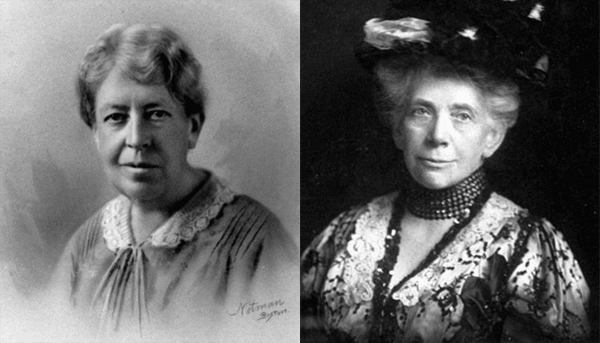In 1836, Wesleyan became the first woman’s college in the world. Over the next few decades, other women’s colleges started to open up, and soon after, about 50 colleges for women opened in the United States between the years of 1836 and 1875. While earning a bachelor’s degree was widely accepted at the time, a doctorate was another issue. Mary Whiton Calkins was one of the women denied of this, and here’s the reason why.
In the mid-1890s Harvard University refused to award Mary Whiton Calkins her Ph.D. in Psychology even when she completed all the requirements for it just because she was a woman.
Who is Mary Whiton Calkins?
Mary Whiton Calkins was born on March 30, 1863, in Hartford, Connecticut. She was very close with her family. They moved to Newton, Massachusetts, from New York in 1880 when her father got a new job as a Presbyterian minister in the area. In 1882, Calkins started her sophomore year at the Smith College, where she studied for a year. She took some time off college after the passing of her sister in 1883 and also tutored her brothers at the same time. Calkins went back to Smith College in 1884 and finished a degree in classics and philosophy.
After her graduation, Calkins took her family on an 18 month trip to Europe. They were able to explore Leipzig, Italy, and Greece. At the time, she took advantage of the situation and studied modern Greek and the classics. Upon their return to the United States, her father set up an interview with the President of the Wellesley College for a tutoring job in the Greek department. She was eventually promoted to a teacher after three years.
Even if there were more educational opportunities for women back then, Calkins still faced issues with sexism in the field and did not have the option to earn a degree in psychology. (Source: The Smithsonian Magazine)
Mary Whiton Calkins and Her Doctorate
Calkins was president of the American Psychological Association (APA) and the Americal Philosophical Association but never actually got her doctorate. She studied at Harvard University, and they didn’t grant degrees for women until 1899. In fact, she was not technically allowed to even attend classes at Harvard.
At that point, psychology was a fledgling discipline connected with philosophy. The emergence of psychology as its own discipline is closely linked with the development of experimental psychology labs in the late 1870s. Calkins was working in a new discipline.
R. Erice Landrum, Psychologist
In 1895, the philosophy department decided that she had met all the requirements for a doctorate, but since women could not get a doctorate from Harvard or Radcliffe College, she never got one.
While the Department has at present no official authority to recognize a woman for the Degree of Doctor of Philosophy, the undersigned, acting as individuals, certify that this thesis is worthy of acceptance.
Mary Whiton Calkins’ Dissertation
By 1902, Harvard offered a special doctorate to Calkins that the Radcliffe College would issue, but she turned it down. (Source: The Smithsonian Magazine)
